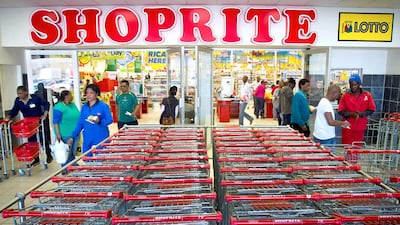Every week seems to bring a new South African bid, with two in the past month and more to come.
Over the weekend there were stories that Foschini, one of the more upmarket South African retailers, is about to launch a bid for Whistles, a favourite of the UK’s duchess of Cambridge. Whistles has 49 stores and lots of franchises in big UK outlets such as Harrods.
The Cape Town-based Foschini, with 2,000 stores across South Africa, already owns Phase Eight, the London-based women’s fashion chain, which it bought last year for more than £300 million.
Its ambitions don’t stop there. It is also said to be interested in another fashion chain, Office, and goodness knows what after that, on its acquisitions trail. The British high street is a nervous place these days, standing by to repel incomers.
Leading the South African vanguard is the remarkable Afrikaans-speaking businessman Christo Wiese, whose roots remain firmly in his homeland but whose ambitions stretch much farther than the Orange Free State, where he was born 74 years ago.
Retailing is not a great Afrikaner tradition and there were not many fashion shops where Mr Wiese grew up before qualifying as a lawyer in Stellenbosch. Yet in the past 40 years he has built his Shoprite supermarket chain into the biggest food retailer on the continent of Africa, before moving on farther north. Last year, through his investment vehicle Brait, Mr Wiese bought control of the New Look UK retail chain in a £1.9 billion deal, adding to his £628m acquisition in April of a near 80 per cent stake in the fitness group Virgin Active.
Through Pep & Co, a discount family fashion chain that is led by Andy Bond, the former chief executive of Asda, he has been expanding into other areas of the high street. And he bought a stake in the food retailer Iceland, which he has been steadily adding to.
That, however, is just the warm-up. The Johannesburg-based Steinhoff International, in which Mr Wiese is the largest shareholder, last month proposed an all-cash offer of £1.3bn for the Home Retail group – the owner of the Argos catalogue retailer, which J Sainsbury had built a whole new strategy around acquiring. In a single move, Mr Wiese spoiled the little party.
Before the City analysts could even get their minds around that one, last Wednesday it confirmed it had approached the UK white goods retailer Darty with a £650m all-cash offer.
The Steinhoff vehicle in this case is the French-based Conforama, one of Europe’s biggest home furnishings dealers, which already has large interests across France.
Even before the bids, Steinhoff, into which Mr Wiese injected one of his holding companies in a $5.6bn deal last year, is already a hefty company, employing about 90,000 people worldwide. Known to some in the furniture industry as Africa’s Ikea, it has bought manufacturers and retail outlets including Conforama in France and Harvey’s in the UK, and is now the second-largest furniture retailer in the world.
Although, like Mr Wiese, South African retailers deny their plan for overseas expansion has anything to do with the political situation in their home country, in reality it does.
The South African economy is dead in the water, teetering on the edge of recession, and retail sales are going nowhere. The top end of the market, where Foschini operates, is in decline and even at the bottom end it is struggling.
In the past three months, the value of the rand has fallen by more than 20 per cent and has halved against the dollar in the past three years, providing a powerful incentive to diversify abroad.
Those who can, such as Mr Wiese, do. The Cape Town-based Woolworths, South Africa’s equivalent of Marks & Spencer, acquired David Jones, the Australian department store, in 2014 in a deal valued at US$1.52bn, and Johannesburg-based Massmart, which is majority-owned by Walmart, has also been expanding across Africa.
The landlocked companies, such as Pick n Pay, which remain behind, are struggling.
Mr Wiese hates the idea of being seen as deserting his homeland, insisting his overseas push has nothing to do with losing faith in South Africa.
“It’s not a matter of moving assets out of South Africa – it has rather a positive pull,” he says. “I’m well known as a great South African and African optimist, I believe, with good reason.”
All of that is true. Unfortunately it gains him no brownie points with a Zuma government which is increasingly seen as anti-business and anti what it calls “colonialism”, which essentially means white-controlled business in particular. At present the movement of capital and of business is out, not in, and that is unlikely to change in a hurry. Expect more British high street names to tumble.
Ivan Fallon is a former business editor of The Sunday Times.
business@thenational.ae
Follow The National's Business section on Twitter

